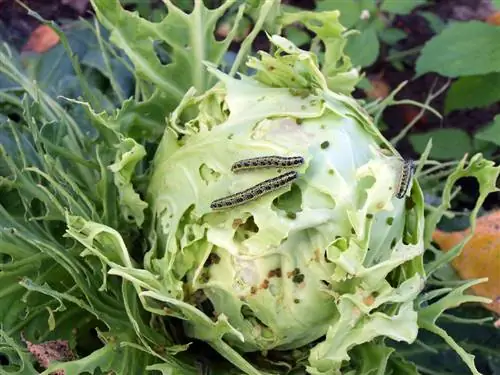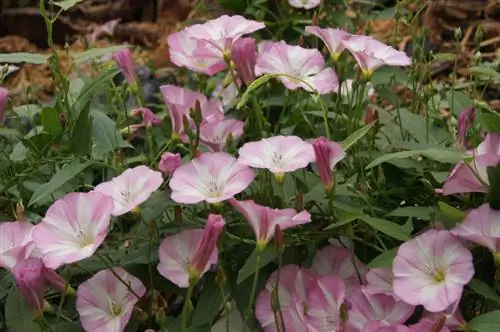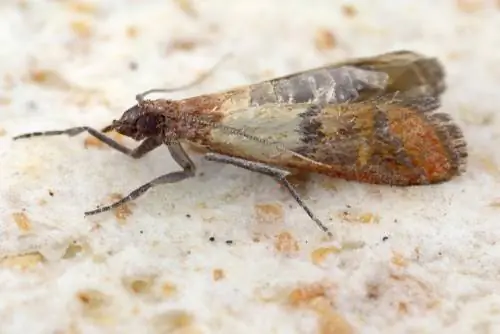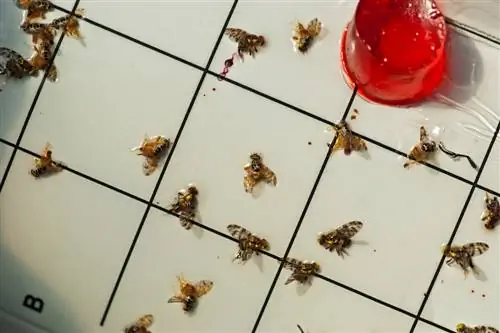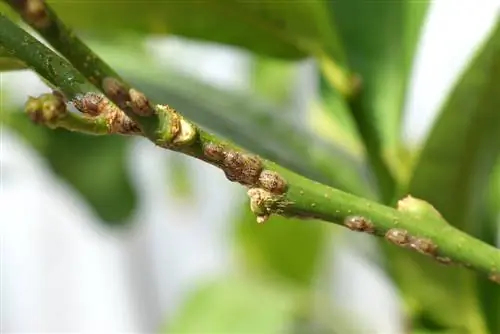- Author admin [email protected].
- Public 2023-12-16 16:46.
- Last modified 2025-06-01 06:02.
A variety of insects and small animals are defined as vermin because their way of life conflicts with successful plant care. To ensure that pests do not gain the upper hand in the garden, destroy the crop in the kitchen garden or devastate the flower bed, the modern gardener uses ecological control methods. Find out the best non-toxic strategies against pests in the garden here.
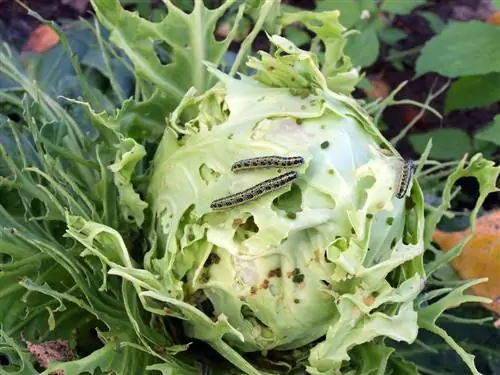
How can you fight pests in the garden ecologically?
Non-toxic strategies against pests in the garden include manual collection of pests, the use of water with non-toxic additives such as soft soap or essential oils and the promotion of beneficial insects through natural design such as dry stone walls and mixed hedges.
Identifying vermin as such
There are only a few real pests in the garden, such as ticks or rats, which transmit dangerous diseases. In contrast, useful animals are wrongly treated as vermin, even though they make a valuable contribution to a he althy garden.
Ants and moles are a bit annoying with their crawling and mounds of earth. In fact, they loosen the soil and destroy huge amounts of insects. Therefore, please consider carefully in advance whether you are actually dealing with vermin in the garden.
Collecting reduces the infestation pressure
If voracious snails or Colorado potato beetles infest the garden, the manual control method works wonders. They take the edge off the current infestation pressure so that ecological control agents can then develop their effectiveness. Early morning is the best time to collect slugs with snail tongs (€11.00 on Amazon) and Colorado potato beetles or weevils with your fingers.
Water - the underestimated control agent
A strong jet of water is enough to kill aphids, spider mites and other pests. Add the following non-toxic additives to the water to increase its effectiveness:
- Against aphids: dissolve soft soap or curd soap in hot water
- Against ticks: Simmer chopped citrus fruits with essential oils in water for 60 minutes
- Against Colorado potato beetles: Ferment horseradish in water to make manure or mint broth
Moist plant leaves are a welcome target for fungal spores. Therefore, use pesticides against pests in the early morning hours before sunrise so that the leaves dry quickly during the day.
Tip
In the natural garden there are crowds of beneficial insects that destroy large quantities of vermin. Therefore, avoid a meticulously tidy area, as this will deter your garden helpers. Instead, integrate a natural dry stone wall and mixed hedge into the design plan, leave piles of leaves and brushwood as inviting places to retreat and nest.

